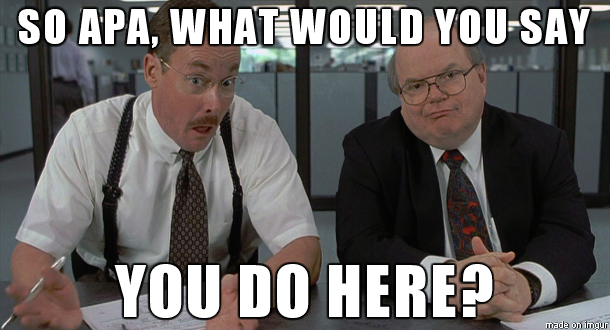I couldn't agree more with your post. In fairness to professional schools, if you look at C-20 data for many of them over the last 5 years, many really did drop enrollments, some to a pretty considerable extent. The problem is that a small number of programs (Adler has been mentioned on the board several times, and they definitely did this though there are more) scaled UP their enrollments and presumably grabbed up all the people who would not have gotten in elsewhere (and who will add to the applicant pool in 4-6 years). This speaks to me even more to move away from the "psyd vs phd" issue to individual program accountability, and bringing a hammer down on individual programs that do insane, unprofessional, and damaging practices like that.
It's never been clear to me, from years of working on this, why so many in APA admin are so resistant to the clear ideas you've mentioned. I certainly never shut up about them in meetings. Money is probably one thing (e.g., the funding of convention by professional schools), but my experience was that many of the musical chairs APA board members (i.e., the people who are on it forever and just rotate around boards) don't want to do anything that could make for the meetings to be actual work, rather than siting around a very fancy hotel and eating for free for a few days. A few years ago, I remember I was in an APPIC meeting and mentioned discrepancies in C-20 data and APPIC's data on program match rates, and was shouted down by the NCSPP chair. Now, several years later, there is recognition of widespread creative accounting of those statistics by programs. Oh, well. Never attribute to malice that which is adequately explained by laziness, I suppose. All the more reason for people like us to be involved--there is no magical "the APA" or "the state board" floating in the sky determining our fates; we can get on these boards and make people do things.

